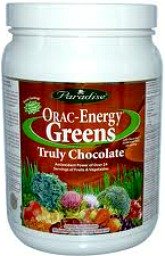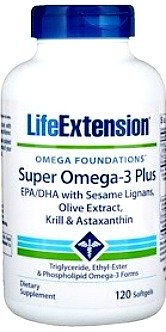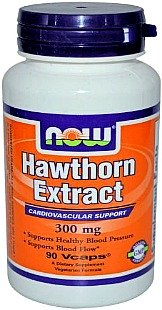Blood test for heart disease: The list
Blood test for heart disease measures either blood lipids, minerals, hormones, blood cell count and cardiac enzymes or proteins which can help diagnose or assess the risk of heart disease.
However, these tests are usually combined with some kind of imaging tests which increases the chances of finding the cause of heart related problems.
CHOLESTEROL AND TRIGLYCERIDES
Measuring blood lipids is frequently used blood test for heart disease. Although extremely low values can be dangerous too, in most people blood lipids tend to be elevated.
Elevated triglycerides, total and LDL cholesterol can lead to atherosclerosis, coronary heart disease, increase the risk of heart attack and chest pain.
ELECTROLYTES
Electrolytes are minerals which have an effect on the nerve and muscle function, amount of water in the body, blood pH levels and other body functions.
Since kidneys and few hormones work together, when it comes to regulating electrolytes levels in the blood, urine test is good indicator of kidney function. Kidneys are vital organ, when it comes to blood pressure regulation, detoxification and many other processes which can affect the heart and blood vessels.
Also, sweating, dehydration, diarrhea, vomiting, intense or prolonged exercise, malnutrition and alcohol intoxication can affect electrolytes levels in the blood.
HOMOCYSTEIN
Homocysteine is a naturally occurring amino acid, found in the blood. High levels are associated with cardiovascular disease, especially with atherosclerosis, heart failure and heart attack.
Elevated homocysteine is usually caused by folic acid, vitamin B-12 and B-6 deficiency or malnutrition. Homocysteine blood test for heart disease can be combined with CK, troponin and myoglobin.
CREATINE KINASE (CK)
Creatine kinase is an enzyme found in the heart, brain, skeletal muscles, and other tissues. When it comes to heart disease, it can help diagnose heart attack and cardiac muscle damage.
Since creatine kinase can also be elevated due to kidney failure, surgery, injury, myositis or breakdown of skeletal muscles because of intense of prolonged exercise, CK-MB can be measured, too.
Creatine kinase-MB is one of three different forms of CK which is mostly found in the heart muscle which makes it much more useful for diagnosing the damage of the heart muscle.
TROPONIN AND MYOGLOBIN
Troponin and myoglobin are two types of proteins which are usually measured along with creatine kinase. They are found in skeletal and cardiac muscle.
However, while myoglobin is found in both types of muscles, troponin T and especially troponin I are found mainly in the heart muscle. Elevated values of CK, troponin and myoglobin are used to diagnose damage of the cardiac muscle and heart attack, among other.
C-reactive protein (CRP)
CRP is a type of protein released during inflammation, by the liver. High levels of CRP are associated with coronary artery disease and rheumatoid arthritis which can lead to inflammatory heart disease and damage the heart muscle.
CRP can be elevated due to bacterial or viral infection, obesity, in a case of chronic inflammation or due to unbalanced hormone levels, especially when estrogen is high. Normal values are between 0 and 10 mg/dL.
FIBRINOGEN
Fibrinogen is a protein produced by the liver which is needed for blood clot formation. It helps prevent bleeding.
However, some people may have too much fibrinogen in their blood which can cause heart attack. On the other hand, some may have too little fibrinogen in their blood which can cause bleeding.
Normal values are between 200 - 400 mg/dL.
BLOOD SUGAR
Besides diagnosing diabetes, measuring fasting blood sugar levels, is also helpful blood test for heart disease.
Although it is not used to diagnose heart disease, it can help asses the risk from heart related problems in the future. The better your body is able to control blood glucose levels, the lower your risk and vice versa.
BLOOD CELL COUNT
Complete blood cell count (CBC) is the most often type of test preformed, in general. Although it is not specifically used to diagnose heart related diseases, it can help assess your overall health and function of the liver, kidneys and bone marrow.
This is important since impaired liver or kidney function as well as overactive or underactive immune system can lead to heart problems, over time.
HORMONES
Although there are many hormones that can increase or decrease the risk from heart disease, there are few of them such as sex and stress hormones that have the biggest affect.
However, in most cases, doctors overlook these type of blood test for heart disease. While at his office, tell your doctor that you want to check your hormones, too, especially estrogen, ACTH and cortisol, along with other markers for heart disease.
- Heart Healthy Diet: Simple Tips and Guidelines
- Learn everything you need to know about heart healthy diet and find the right one for you. Implement few simple tips for immediate benefits.
- Heart Healthy Foods: How to Get the Most from Them
- Heart healthy foods can improve cardiovascular system function. Foods good for the heart are bursting with vitamins, minerals and rejuvenating phytochemicals.
- Herbs for the Heart and Cardiovascular System
- You have heard for hawthorn and garlic but there are few other herbs for the heart which can help in treating heart disease, naturally.
- The Best Heart Health Supplements
- Besides fish oil, there are several heart health supplements which can be useful. This includes Coenzyme Q10, Salicin, vitamin D3 and few others.
- Heart Healthy Spices
- Although there are many heart healthy spices out there, each of them can help prevent and treat heart disease in its own way, thanks to different types of flavonoids in these heart spices.
- Stress and Heart Disease: How are They Connected
- Stress and heart disease are closely related. In order to decrease the risk of heart problems, we have to learn how to handle the stress and treat its consequences, if we are unable to avoid it.
- Cardio Exercises for the Heart and Cardiovascular System
- Cardio exercises are vital part of natural heart disease treatment. However, which kind of heart exercise you should preform, varies from person to person.
- Good vs Bad Cholesterol: How to Improve Cholesterol Values
- Good vs bad cholesterol conflict is somewhat misunderstood. There is no good or bad cholesterol but only high or unbalanced cholesterol.
- Good Fats vs Bad Fats: Nutritional Facts and Guidelines
- What is the real truth when it comes to good fats vs bad fats? How much dietary fats should you consume daily and what are the best food sources of healthy fats?
- High Blood Pressure Remedies
- High blood pressure remedies range from tips and lifestyle modification to herbs and supplements. However, the method that works for someone else, may not work for you.
- Normal Heart Rate: How is Regulated and Influential Factors
- Normal heart rate varies from person to person. Although, age affects resting heart rate, there are many other factors that can raise or decrease heart rate.
- How to Lose Fat: Overlooked Tips for Weight Loss
- How to lose fat is surely one of the most intriguing questions for so many people. However, the answer is very simple. Eat healthy foods, perform fat burning exercises and take care of your hormones.
- Hormones and Heart Disease Connection
- Don't neglect hormones and heart disease connection. If you want to treat or prevent heart disease you have to balance your hormones.
- Heart Disease and Immune System Connection
- Heart disease and immune system connection is often overlooked, while trying to improve cardiovascular system function. However, there are several things you can do to change this.
- Dental Health Heart Disease Connection: Facts and Tips
- Dental health heart disease connection is one of three overlooked factors, along with hormones and immune system. However, with smart and effective approach we can change this.
- Causes of Heart Disease
- There are many causes of heart disease and factors that can increase or decrease your risk for developing heart related problems. Check how to turn the tide in your favour.
- Symptoms of Heart Disease
- There are few main symptoms of heart disease. Find out which are they, how to recognize them as well as my personal experience with some of them.
- Diagnosis of Heart Disease
- Accurate diagnosis of heart disease is the first step toward recovery. You can't start with treatment before you know what kind of disease you have, obviously.
- Treatment for Heart Disease: Medications and Surgeries
- Standard treatment for heart disease consists of surgeries, medications and devices. Which one is right for you, depends on your condition.
- Heart Disease Blog
- This is a blog about natural remedies, personal stories, helpful herbs and supplements, workout program as well as other tips and facts which may help people faced with heart disease.
- Contact Me
- Ask questions and leave comments about this site here.
- About the Author of Heart Health Guide
- About the author of Heart-health-guide.com website.
- Heart Health Guide Sitemap
- This is sitemap of Heart Health Guide.com. If you want to get better overview of informations on this website, you can get it here.
Copyright © - Heart Health Guide - All Rights Reserved.



